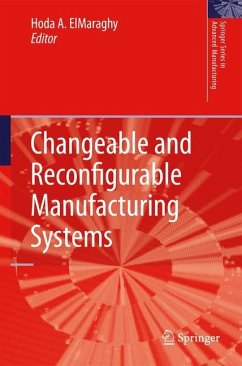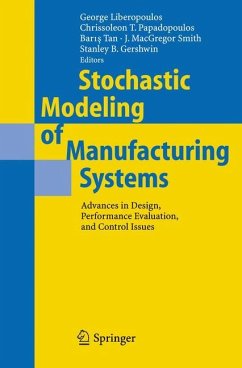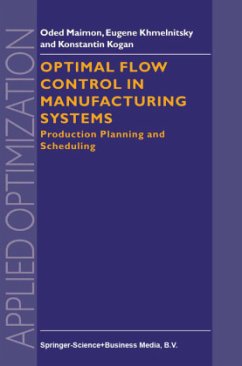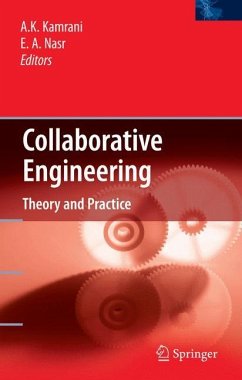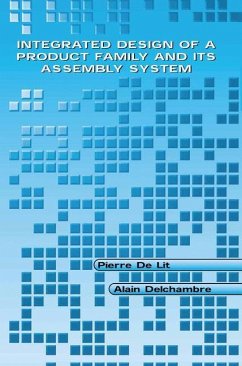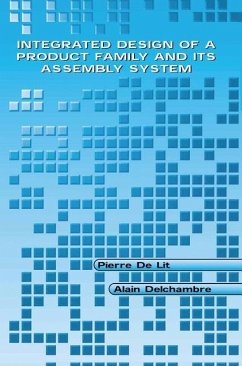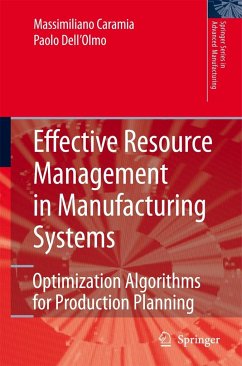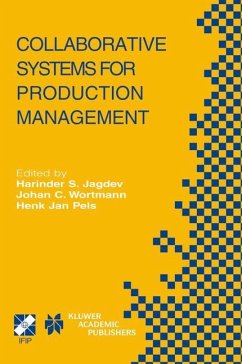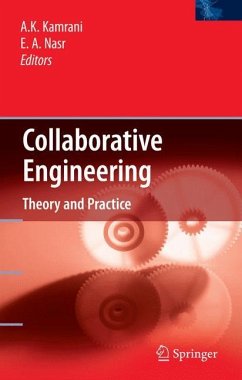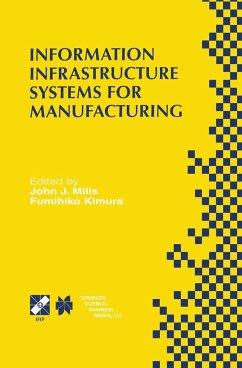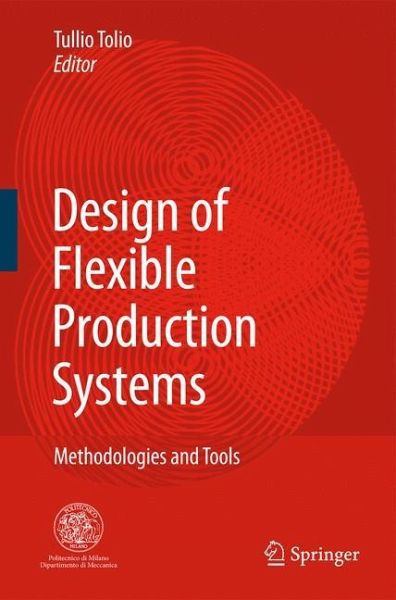
Broschiertes Buch
Design of Flexible Production Systems
Methodologies and Tools
Herausgegeben: Tolio, Tullio
Versandkostenfrei!
Versandfertig in 1-2 Wochen
Weitere Ausgaben:

PAYBACK Punkte
65 °P sammeln!




The authors of this book give a profound view on optimized system flexibility, considering both advantages and disadvantages related to the acquisition of flexibility. They show that the highest level of flexibility is not required in many production contexts.
Tullio Tolio is Full Professor of "Manufacturing and Production Systems". He teaches "Manufacturing", "Integrated Production Systems" and "Reconfigurable Manufacturing Systems" at Politecnico di Milano, 2nd Faculty of Engineering (Faculty of System Engineering). He is the head of the course on "Management of Research" offered to all Ph.D. students of the Politecnico di Milano. He has carried out research activities at the Laboratory for Manufacturing and Productivity (LMP) of the Massachusetts Institute of Technology (MIT). He has been scientific responsible for the Politecnico di Milano of the Brite Euram project MOD-FLEX-PROD (EU - 4th framework Programme of the EU)and of the IST project DRIVE (EU - 5th framework Programme) funded by the European Community, and of the project SPI7 funded by MURST (former Italian Ministry of University and Research). He is national coordinator of the project "Methodologies and tools to design production systems with focused flexibility" funded by MIUR (Italian Ministry of University and Research), scientific responsible for the Politecnico di Milano of the project FIRB01 "Software frameworks and technologies for the development and maintenance of open-source distributed simulation code, oriented to the manufacturing field" and of the Network of Excellence VRLKCiP "Virtual Research Lab for a Knowledge Community in Production" (EU - 6th framework Programme). He has published more than 100 papers in international journals and international conferences. He is Fellow of the CIRP (the International Academy for Production Engineering) and member of AITEM (Associazione Italiana di Tecnologia Meccanica -Italian association for manufacturing. Regarding management activities, he is the Delegate of the Rector of Politecnico di Milano on "Quality assurance in education" and Head of the Division "Tecnologie Meccaniche e Produzione (Manufacturing)" of the Department of Mechanical Engineering of Politecnico di Milano; in the years 2000-2003 he was Head of the Ph.D. program in "Manufacturing and Production Systems" of Politecnico di Milano. His research topics cover the areas of design and management of integrated production systems. The research activities encompass innovative and traditional system architectures in different sectors (machine tools production, production of mechanical components, services). The main research activities are summarized in the following points. Configuration of Manufacturing systems The design of manufacturing systems is a strategical activity for manufacturing firms due to the high investments involved in system acquisition and to the impact that the design decisions have on the future performance of the firm. In particular in this research area research has been carried out on the problem of selecting the proper systems architecture (transfer lines, flexible manufacturing systems, manufacturing cells, modular manufacturing systems) and machine architecture, on the problem of defining the right timing for production capacity acquisition, on the problem of system dimensioning and quality control system design. Research efforts have been also devoted to the problem of automatic generation of simulation models to be adopted within the configuration modules. Short term management of Manufacturing systems To fully exploit the system capacity and capability it is necessary to adopt system management tools. In this area studies have been carried out on the loading problem in Flexible Manufacturing Systems (FMSs) and on the scheduling of manufacturing systems. Performance evaluation of Manufacturing systems Both to design and to manage a system it is necessary to asses its performance. In this area, research activities have been concentrated on the development of new methodologies and tools to evaluate system performance with the aim on one hand of reducing the burden of modelling and running experiments typical of simulation techniques and on the other hand of eliminating the restrictive assumptions typical of analytical tools. In this area a new decomposition technique has been developed which can model systems composed of machines subject to different types of failures. Moreover new solutions have been proposed to model systems with loop configurations and flexible lines producing different products. Process Planning Part programs required to machine mechanical components on numerically controlled CNC machines are normally defined as a fixed sequence of operations and are generated without considering the actual load on the machines. This approach results in a reduced exploitation of system capacity. An alternative way of tackling the process planning problem is to generate non-linear process plans which include alternatives in the operation execution order and/or in the types of operations required. In this area research activities have been devoted to the automatic generation of non-linear process plans and on the use on non-linear process plans both in the short term production planning and in the selection of the resources during the system configuration phase.
Produktdetails
- Verlag: Springer / Springer Berlin Heidelberg / Springer, Berlin
- Artikelnr. des Verlages: 978-3-642-09908-3
- Softcover reprint of hardcover 1st edition 2009
- Seitenzahl: 316
- Erscheinungstermin: 19. Oktober 2010
- Englisch
- Abmessung: 235mm x 155mm x 18mm
- Gewicht: 474g
- ISBN-13: 9783642099083
- ISBN-10: 3642099084
- Artikelnr.: 32983119
Herstellerkennzeichnung
Springer-Verlag GmbH
Tiergartenstr. 17
69121 Heidelberg
ProductSafety@springernature.com
Für dieses Produkt wurde noch keine Bewertung abgegeben. Wir würden uns sehr freuen, wenn du die erste Bewertung schreibst!
Eine Bewertung schreiben
Eine Bewertung schreiben
Andere Kunden interessierten sich für


